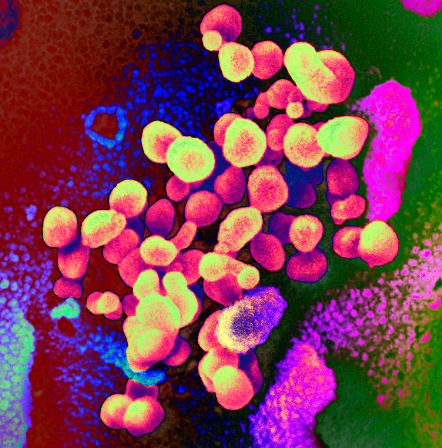Instant COVID check coming
 Australian researchers are working on an instant COVID sensor to prevent outbreaks and protect communities.
Australian researchers are working on an instant COVID sensor to prevent outbreaks and protect communities.
Engineers are developing a new biosensor that can detect the presence of tiny amounts of the SARS-CoV-2 virus and its variants.
The sensor should be able to deliver results within a minute to provide the all-clear for someone to enter their work environment or alert them if they need to undertake a medical COVID test and self-isolate.
A successful prototype is being further developed by Melbourne-based biomedical start-up Soterius in partnership with RMIT, MIP Diagnostics, the Burnet Institute, D+I and Vestech. Its proponents say it could be available for commercial release in early 2022.
Prototype tests conducted at RMIT, in partnership with Burnet Institute, reveal the Soterius Scout biosensor detects SARS-CoV-2 spike protein fragments with impressive accuracy and no false positives.
The technology can detect COVID-19 even if someone is asymptomatic. It can be worn as a fob or attached as a fixture within a workspace.
Data from a reader can also be transmitted to the cloud to enable remote monitoring of hot spots and support the containment of local outbreaks.
Additionally, the system uses flexible microelectronics and a synthetic nanotechnology that binds to targeted viruses, enabling specific detection and preventing false positives.
Trials also show the sensor has potential to become a top performing diagnostic tool for respiratory illnesses and it is now being scaled to detect other diseases such as influenza and MERS.
The devices will initially be delivered to hospitals, with future applications in other essential worker and high-traffic settings including aged care, quarantine hotels, airports and schools.
Soterius co-founder Dr Alasdair Wood says emerging environmental viral sensors are bulky, energy intensive and can detect only one type of virus.
“Our biosensor is so small it can fit on a personal fob card and it’s easy to use – you just need to swipe your card over a reader at checkpoints,” Dr Wood said.
“Importantly, one sensor can detect up to 8 viral strains and our technology can be easily adapted to detect new variants or novel viruses as they emerge.
“We hope the Soterius Scout biosensor could be a vital tool for managing COVID-19, providing accurate early detection to prevent outbreaks and avoid the need for future lockdowns.”
More information is accessible here.







 Print
Print